
Styling a property and making it your home is something that’s completely reliant on your own taste and personality; you’ll ultimately fill it with items that match your own style expectations and that represent you, your family and the ones you love. But when it comes to styling a coastal holiday let to be occupied by countless guests with a broad range of tastes, where do you or should you begin?
You’ll want your coastal holiday let interior to be neutral in order to not alienate anyone thus narrowing your potential market. Equally you’ll want to stand out from the crowd and make sure that your holiday home has the wow factor to make it leap from the website page your potential guests are viewing.
This is particularly pertinent for coastal cottages; many people want to spend their summers (and winters!) by the sea, but how do you stand out from the standardised ‘nautical’ look and feel that has swept the coastlines of the UK?
Here’s just a few tips on styling your coastal holiday let…
Know your target market
Any interior design or furnishing always starts with understanding who’s going to be staying in your holiday cottage. The look and feel of a family-friendly abode is going to be very different to that romantic bolt-hole for young professionals venturing out of London for the weekend.
So the question is, are you in your own target market? If not, then it can be incredibly difficult to step away from our own tastes or personal preferences and place ourselves into the shoes of those that will be.
The answer? Consider asking the people that matter the most – your own guests. What do they like about the interior of your cottage at the moment? Are there aspects they don’t like? What would they change for the better if they could?
Feedback forms are often filled out by guests on departure. However these rarely veer from the generic questions of overall quality and satisfaction. If you’re considering renovating or refurbishing your holiday home, perhaps take the opportunity to ask your guests for their opinions.
Less is sometimes more
If you’re based on the coast, then it can be tempting to sweep through your holiday home with swathes of white and pastoral blues, but the latest trends and interior design experts suggest that less in this case certainly is more.
They recommend using blues as an accent colour, rather than one of dominance, which if you’re wanting to welcome guests to your holiday home in the winter months is certainly worth bearing in mind as blue is always thought to be a cooler colouring by the human psyche.
Avoid the cliché
Lighthouse lamps, porthole mirrors, seashells, rope, anchors, wall-hung oars and endless prints of ships. How many of these feature in your coastal holiday home? Props in your holiday home can not only lead to a forced style, but also clutter and if you’re welcoming young children into your property, create situations where such items can be easily broken or lead to harm.
A holiday home will generally be more lightly furnished than your own home. So always ensure props or any additional pieces become features rather than clutter.
So what actually is in style?
The people in the interior design know tell us that in-vogue at the moment are:
- classic tongue and groove panelling,
- painted floorboards,
- galvanised metals and weathered paintwork
Accessorising with antique mirrors, worn leather chairs, white china, glass jars and vintage enamelware will finish the look.
No matter what the current trend, your styling success will ultimately come down to connecting with your target market. By finding common ground with them and placing them at the heart of every decision, you’ll not go far wrong.
Remember when creating the perfect style for your coastal holiday let be sure to review your sums insured. After all that hard work you’ll not want to fall short on cover should the worst happen.
Boshers are specialist providers of holiday home insurance. For information on specialist insurance can help protect your holiday home business, please give us a call on 01237 429444.


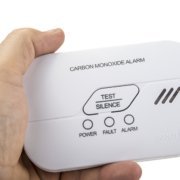
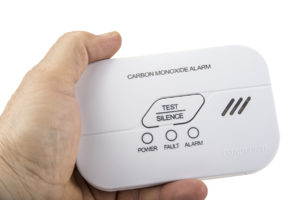



 As specialists in
As specialists in 
 Have you considered what would happen if your
Have you considered what would happen if your 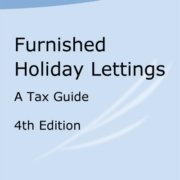
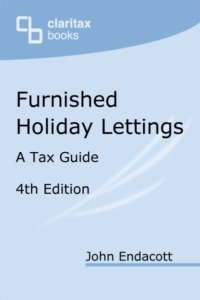 The holiday cottage industry brings with it a unique set of circumstances; as providers of
The holiday cottage industry brings with it a unique set of circumstances; as providers of 
 Whether your family friendly
Whether your family friendly 
 With spring and summer ahead, it will be natural for
With spring and summer ahead, it will be natural for 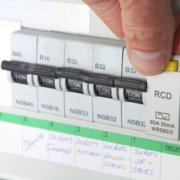
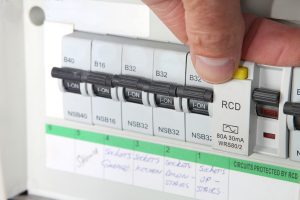 There are some items in modern life we just couldn’t do without, whether in the home or whilst on holiday; kettles, coffee machines, toasters, microwaves, TV’s, Hi-Fi’s and mobile devices. These all play a central part of our days, as they will be for those visiting your
There are some items in modern life we just couldn’t do without, whether in the home or whilst on holiday; kettles, coffee machines, toasters, microwaves, TV’s, Hi-Fi’s and mobile devices. These all play a central part of our days, as they will be for those visiting your 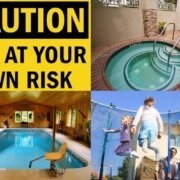
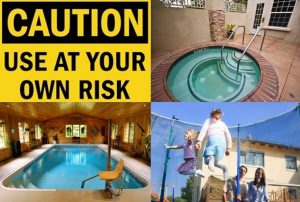 We’ve all seen them in everyday life; ‘Park here at your own risk’, ‘Playing in this area is at your own risk’. Disclaimer notices have become an increasingly common sight for most of us. Therefore it may surprise you to find that they don’t absolve the owner from blame should something go wrong. This is equally true for your
We’ve all seen them in everyday life; ‘Park here at your own risk’, ‘Playing in this area is at your own risk’. Disclaimer notices have become an increasingly common sight for most of us. Therefore it may surprise you to find that they don’t absolve the owner from blame should something go wrong. This is equally true for your